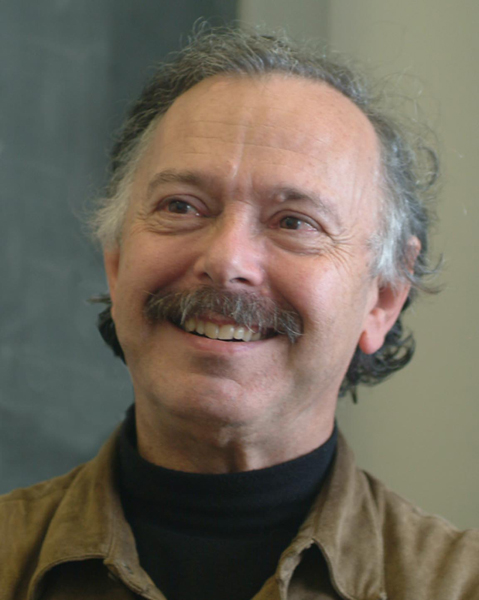Recent congressional hearings on climate may be a turning point in the long and fierce debate about whether or not we’re warming. [12 April 2011 | Peter Boyer]
Jot this down: 31 March 2011 marked the first signs of a significant shift in how the world public views the science behind global warming.
We can’t be sure about this for a while, maybe a year or more. These things are hard to detect. Maybe little will come of it, in which case forget I ever said it. But signs are that events on that day will have consequences.
That morning, in a US Congress committee room in Washington, three scientists and some other witnesses testified before the House of Representatives Subcommittee on Energy and Environment.
Republican members of Congress who believe the threat from warming has been exaggerated determine the subcommittee’s agenda. Of the six witnesses called that morning, they allowed the Democrats to invite one, meteorologist Dr Kerry Emanuel from the Massachusetts Institute of Technology.
Emanuel made a telling point about risk. He said that with scientific assessments of future climate ranging from benign to catastrophic, we should act on the basis of an outcome worse than benign. It would be folly, he said, to claim a benign outcome as a certainty.
The Republicans called two scientists. One was Alabama’s Professor John Christy, one of a few experienced atmospheric scientists who argue that humanity’s role in warming is insignificant, and who said as much to the committee. The other was a Professor Richard Muller from California.
Muller came to the hearing with a mixed reputation. A star pupil of particle physicist and Nobel laureate Luis Alvarez, he is acknowledged by his peers as an eminent physicist and teacher. But there’s no such unanimity about him in the Byzantine world of climate science.
Over the past decade he’s written and spoken in support of the analytical work of Stephen McIntyre, Ross McKitrick and Anthony Watts, prominent bloggers who dispute the science that says we have a problem with human-induced, or anthropogenic, global warming — AGW.
Those who practise such science have been favourite targets of the likes of Glenn Beck, of “Tea Party” fame, and Fox News’s Bill O’Reilly, so their hackles were raised when Muller appeared on Beck’s and O’Reilly’s radio and television shows to discuss physics and climate.
About a year ago Muller hand-picked a team of widely-respected academics working in physics, statistics and climatology to undertake a project with the improbable aim of ending the debate about whether our planet is warming.
“Berkeley Earth”, as the project (based in Berkeley, California) is now called, seeks to determine the accuracy of current global temperature assessments, starting with just the raw data including 1.6 billion land temperature measurements, and applying some impressive programming skills.
Berkeley Earth’s aim, says its website, “is to resolve current criticism of the former temperature analyses, and to prepare an open record that will allow rapid response to further criticism or suggestions.” It seeks a broad consensus on global warming and an end to political point-scoring.
Berkeley Earth is still a work in progress, but Muller took to the Congress a preliminary analysis of a small data subset. It was this analysis that the committee members were keen to hear about.
They weren’t alone there. Anthony Watts is a former television weatherman who visited Hobart last year to tell us why we shouldn’t believe official weather records. Watts has painstakingly surveyed US weather stations for evidence that their locations cause a warming bias in temperature records.
Watts liked what he saw about the Berkeley Earth work when he visited them ahead of the hearings. He said he had far more confidence in their analysis than in the established institutions, and believed that their results “will be closer to the ground truth than anything we’ve seen”.
Watts boldly declared that “I’m prepared to accept whatever result they produce, even if it proves my premise wrong”. More guarded endorsement of Muller’s project came from anti-AGW writers Steve McIntyre and Fred Singer.
On the other side of the fence, bloggers sought to undermine Muller ahead of the congressional hearings. In the same week as the hearings, both Joe Romm (Climate Progress) and John Cook (Skeptical Science) branded him a “misinformer”.
Muller’s testimony was a surprise to everyone, supporters and critics alike. “We see a global warming trend that is very similar to that previously reported [by established climate institutions],” he said. And: “we find that the warming seen in the ‘poor’ stations is virtually indistinguishable from that seen in the ‘good’ stations.”
In other words, Berkeley Earth’s data sample indicated that institutions like the National Climate Data Center and NASA’s Goddard Institute of Space Studies had it right all along: their analyses are sound and we are, indeed, warming.
With admirable dispatch, on the same day as the Muller testimony Watts sent a response to the committee advising, correctly, that the Berkeley analysis was only preliminary. He added his opinion that “biases remain in the surface temperature record [and] the resultant uncertainty is large”.
This story has a way to go. It’s far from certain that Muller’s final report in a few months’ time will match his March testimony. But if it does, then Watts, McIntyre and other key figures in the anti-AGW camp who have argued that warming is not happening will need to reassess their positions. We might even begin to get some real consensus.

